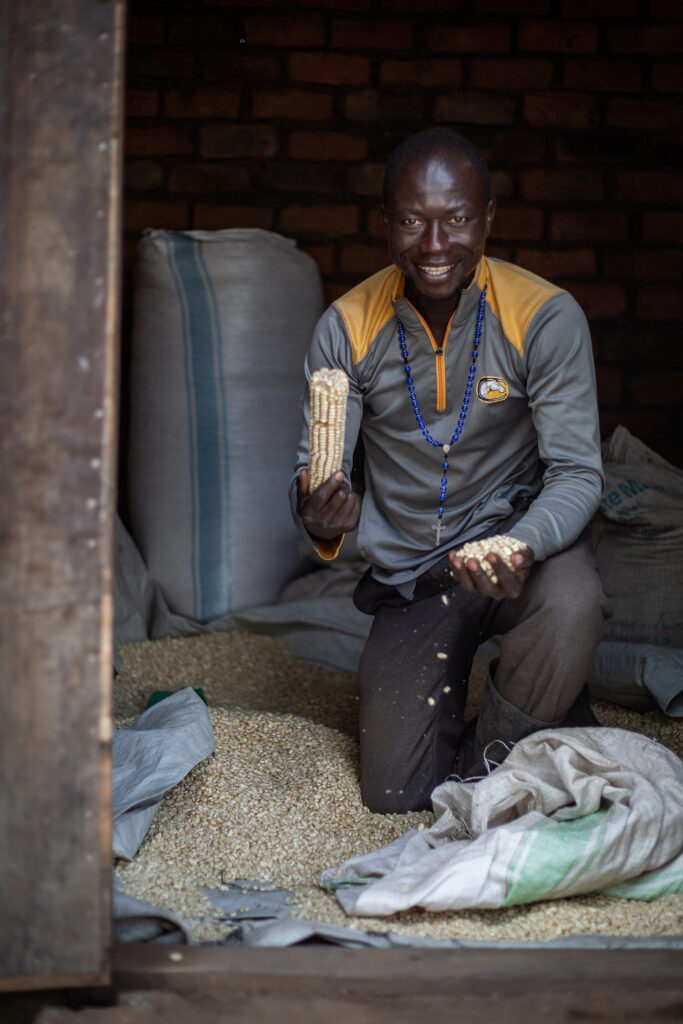By Vision Reporter
Imvepi farmer James Anguyo has since 2019 opened his fields to refugees, allowing them to farm on his land without charging rent. This allowed ForAfrika to start a demonstration site on Anguyo’s land.
“Before, everyone used to farm their own land. Then, ForAfrika helped us to form a group including the refugees. We started working together as a team,” says Anguyo, AKA Godfather James.
The group of refugees working on his farm has grown from 22 in 2019 to more than 100 in 2023. Working alongside them are Anguyo himself and eight fellow Ugandans.
“It has increased our incomes as we’ve sold some [surplus] crops in the market,” he says.
Moses Lomoro is one of the refugees working on Anguyo’s farm. More than five years ago, he came to Uganda from South Sudan with his family of five children, fleeing constant violence. “My neighbour was slaughtered in my presence. I had to run as long as my legs could support me in order to survive.”
Lomoro, who spent time in the Imvepi Refugee Settlement in north-western Uganda before joining Anguyo on the farm, says: “I have never seen a person with such a kind heart as James. He welcomed us like his brothers and gave us free land. There has been no discrimination among us. Whether this one is a refugee or a national, we are all treated equally.
“Through ForAfrika, we have learnt a lot of skills, like the best agronomic practices, while working together on our farm. We also save together as brothers and sisters,” Lomoro adds, referring to village savings and loan associations (VSLA) that ForAfrika has helped mixed communities like these, establish.
The VSLAs are formal bodies, with community members taking up roles such as chairperson, secretary, treasurer and mobiliser. Women play a key role and fill an equal number of leadership roles as men.
This level of organisation has allowed the farming groups to collectively benefit from several agricultural inputs, such as seeds, tools, training and mentorship, provided by ForAfrika.
“We are so busy that we have forgotten the trauma back home. I love the way the host community coordinates with us, the refugees,” Lomoro says.
Anguyo adds: “Our harvest was 250kg of rice, 300kg of maize, and assorted vegetables – cabbages, tomatoes, onions, eggplants, amaranth and cowpeas. We used some for home consumption and took the surplus to the market. I am very grateful for the support from ForAfrika.”
For 40 years ForAfrika (initially called Joint Aid Management) has worked with hundreds of thousands of refugees, including those who are internally displaced, in many of the seven countries in which it has operations – South Sudan, Mozambique, Uganda, Rwanda, Angola, South Africa and the Central African Republic.






